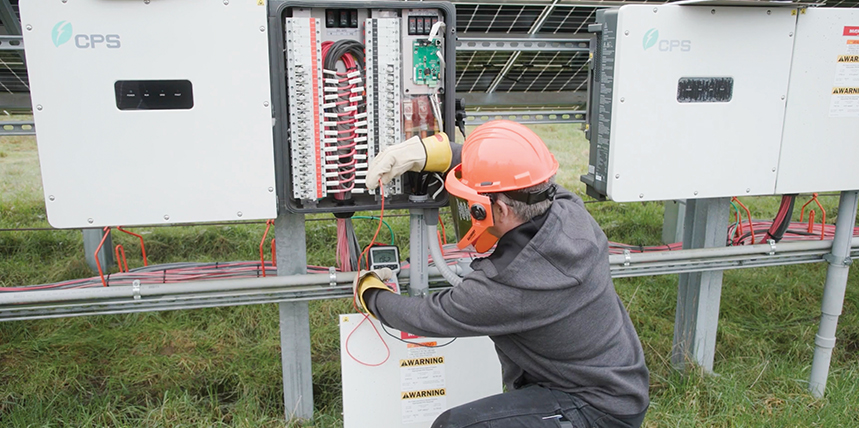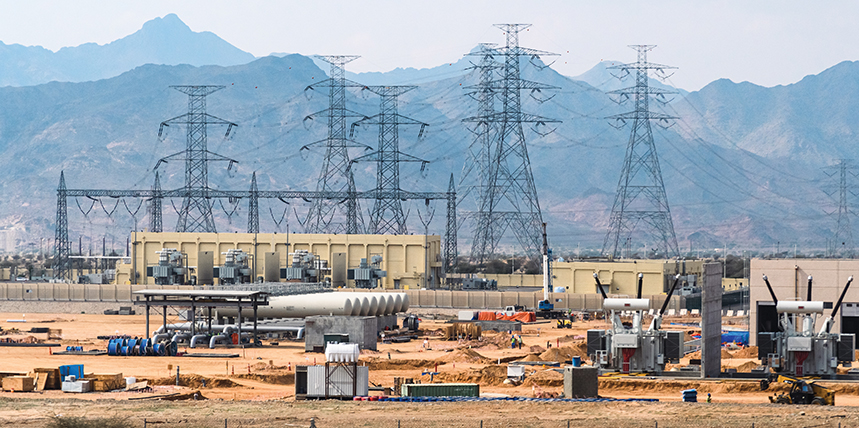Megohm or insulation resistance tests validate the insulating properties of electrical conductors. A conductor with good insulation will have high insulation resistance — often measured in giga-ohms (GΩ). A conductor with bad insulation will have lower insulation resistance, which can create a pathway for excessive leakage current. No insulation is perfect, but the goal of the test is to quantify …
Implementing Substation Automation Systems in the Middle East
Substations play a crucial role in the power system. Acting as the backbone of the grid, they are responsible for essential tasks including monitoring, controlling, and protecting power flow.[1] Over the years, the electrical industry has continuously worked to enhance and improve substation technologies, leading to the development of digital substations that integrate advanced communication and automation systems. These innovations …
Ground Grid Continuity and Integrity Testing
The continuity and integrity test is one of the relevant techniques for assessing the condition of substation grounding systems. This article explains how to detect inconsistencies in the grounding grids, including poor connection of HV equipment to the ground grid and deterioration of the grid itself, and suggests suitable field tests and appropriate equipment for detecting those inconsistencies. The test’s …
Guide to Transformer Windings & Coils
Transformer windings are coils of copper or aluminum wrapped around a transformer’s core (Figure 1). They determine what voltage is produced and whether that voltage is stepped up or down. This article looks at the parts of a transformer’s windings as well as specific transformer winding designs. PARTS OF TRANSFORMER WINDINGS Transformer coils have two main parts: a primary winding …
Optimizing Electrical Safety Thermochromic Overtemperature Indicators
PHOTO: © istockphoto.com/portfolio//Auttawit
Overtemperature events in electrical systems pose a serious threat that can lead to costly failures if not addressed promptly. I’ve seen the impact of these events firsthand — from unexpected failures to catastrophic fires that result in injury, lost productivity, and costly downtime. Despite advances in technology, the risks associated with overtemperature conditions remain a persistent problem for industrial facilities.
Staying Ahead of an Emergency: How NFPA 70B Electrical Maintenance Requirements Can Help Hospitals Prepare
Even in the worst of times, when everything in the world appears to be going wrong, healthcare facilities must get it right. Society has a life-or-death dependency upon hospitals being open and fully capable of treating any needs that arise. The COVID-19 pandemic is an excellent example of our reliance on the healthcare industry. As the virus spread worldwide, hospitals …
Relay Upgrade and Arc Flash Hazard Mitigation
Protective relays are the brain and intelligence behind a medium-voltage distribution system (Figure 1). They serve as critical infrastructure for proper medium-voltage system operation, protection, and system reliability. Upgrading electromechanical to microprocessor relays and mitigating arc flash hazards in a medium-voltage system can be performed in synergy to achieve optimal system reliability and safety. KEEPING UP WITH TECHNOLOGY With electromechanical …
The Evolution of Partial Discharge Testing in Electrical Equipment
Partial discharge (PD) testing is routinely used on all types of medium- and high-voltage equipment as a factory quality assurance test for electrical insulation and as a tool to detect deterioration in the electrical insulation of operating equipment. Today, dozens of vendors supply PD instruments, but the first PD tests were made by researchers over a century ago in an …
Neutral and Ground Harmonic-Induced Power Losses and Correction
In commercial and industrial power systems, harmonic currents can create a variety of issues, including increased power losses and potential damage to equipment. This article describes the various types of power losses associated with neutral and ground harmonic currents with a focus on resistive losses, transformer losses, and dielectric losses in distribution and power factor correction capacitors, and how these …
Unlocking Reliability: A Guide to Low-Voltage Circuit Breaker Maintenance Testing
Circuit breakers in electrical systems play a critical role in ensuring personnel safety, equipment, and systems reliability. These protective devices are designed to interrupt the flow of electrical current in the event of a fault, preventing potential hazards such as electrical fires and equipment damage. Low-voltage circuit breakers encompass a range of types, including insulated case circuit breakers (ICCBs)/molded case …









